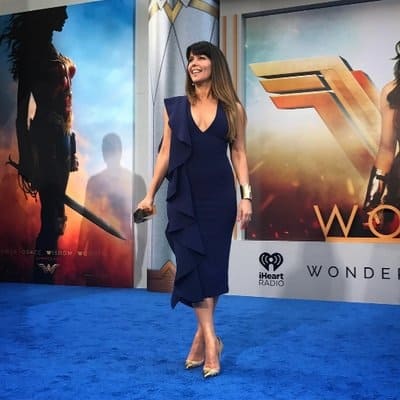Los Angeles, Dec 10 : Filmmakers Patty Jenkins and Aaron Sorkin are not entirely in favour of simultaneous release of films in theatres and on OTT platform, and fear that theatres will become like art houses in the times to come.
Jenkins as well as Sorkin made headlines this year when the studios attached to their films “Wonder Woman 1984” and “The Trial Of The Chicago 7”, and opted for streaming-centric release.
Warner Bros. will release “Wonder Woman 1984” in theatres and on HBO Max in the US on December 25. In the case of “The Trial Of The Chicago 7”, Paramount sold the film to Netflix, which gave the film a limited release in theatres in September and then released it on the streamer in October.
“We’re all scared that everything’s going to change now,” Sorkin said to Jenkins during a conversation for Variety‘s upcoming Virtual FYC Fest.
“That movie theatres are basically going to become, like, art houses, and that the films that you and I make will only be seen on streaming services,” he said, adding: “I don’t think that’s going to happen. I think that for 4,000 years, nothing has replaced the experience of being part of an audience. That shared experience — being in a theatre when the lights go down, everyone laughing at the same time, gasping at the same time, being silent at the same time, and having the final moment of the film reverberate at the same time.”
Jenkins agreed with him, and shared that the “death of moviegoing” has been predicted since the advent of television. However, the director feels the industry is missing a considerable economic opportunity by making streaming the main point of their business.
Jenkins feels talent could start tipping the scales in the other direction, reports variety.com.
Talking about her decision to agree with the release model for her upcoming superhero film, Jenkins said the conditions of the Covid-19 pandemic forced her to prioritise her desire for “communion with an audience”.
There are reports that Warner Bros. reportedly paid Jenkins and star Gal Gadot $10 million each to make up for the shortage in expected box office-related profits.
“When every single studio in town starts chasing the exact same thing, you’re like, Why doesn’t someone differentiate themselves?” Jenkins said.
She continued: “In this case, I think what’s going to happen is … some studio is going to be smart enough to be an outlier, and all the great filmmakers in town are going to go there, and the theaters are going to favor their movies. Because right now, if there are studios that announce that (releasing day-and-date on streaming) is what they’re going to start doing, every filmmaker’s going to head to the studio that promises they’re not going to.”
Talking about the shift to streaming, she said: “It’s not going to be that easy. I think there’s a sentiment right now that change is coming and there’s nothing you can do about it, and I think that doesn’t take into consideration the artists who can very much United Artists-it up and make a big change.”
Jenkins was referring to United Artists, the company founded in 1919 by director DW Griffith and actors Charlie Chaplin, Mary Pickford, and Douglas Fairbanks, with an aim to favour artistes’ interests over the studio system.
Disclaimer: This story is auto-generated from IANS service.







